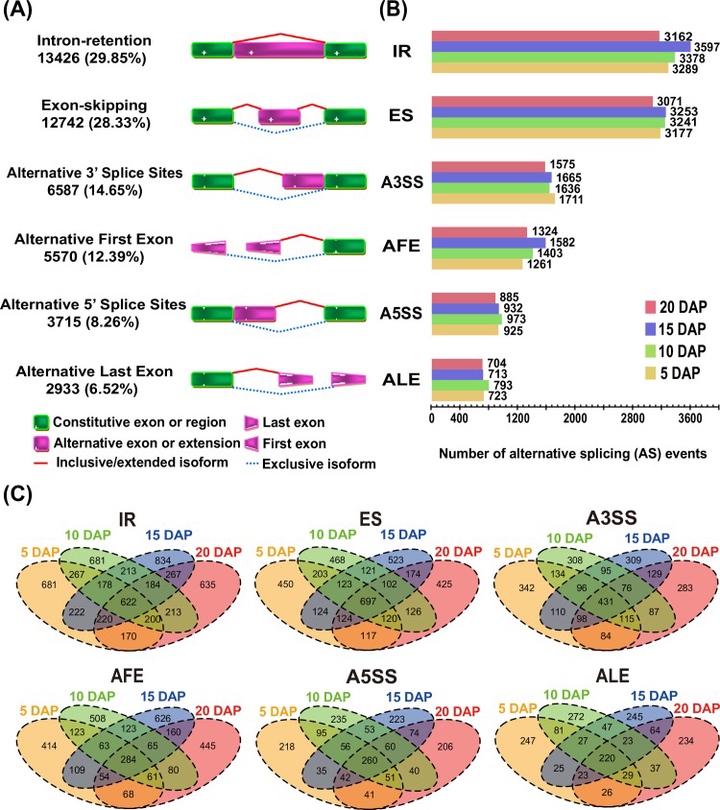
Abstract
The endosperm is a major organ of the seed that plays vital roles in determining seed weight and quality. However, genome-wide transcriptome patterns throughout maize endosperm development have not been comprehensively investigated to date. Accordingly, we performed a high-throughput RNA sequencing (RNA-seq) analysis of the maize endosperm transcriptome at 5, 10, 15 and 20 days after pollination (DAP). We found that more than 11,000 protein-coding genes underwent alternative splicing (AS) events during the four developmental stages studied. These genes were mainly involved in intracellular protein transport, signal transmission, cellular carbohydrate metabolism, cellular lipid metabolism, lipid biosynthesis, protein modification, histone modification, cellular amino acid metabolism, and DNA repair. Additionally, 7,633 genes, including 473 transcription factors (TFs), were differentially expressed among the four developmental stages. The differentially expressed TFs were from 50 families, including the bZIP, WRKY, GeBP and ARF families. Further analysis of the stage-specific TFs showed that binding, nucleus and ligand-dependent nuclear receptor activities might be important at 5 DAP, that immune responses, signalling, binding and lumen development are involved at 10 DAP, that protein metabolic processes and the cytoplasm might be important at 15 DAP, and that the responses to various stimuli are different at 20 DAP compared with the other developmental stages. This RNA-seq analysis provides novel, comprehensive insights into the transcriptome dynamics during early endosperm development in maize.